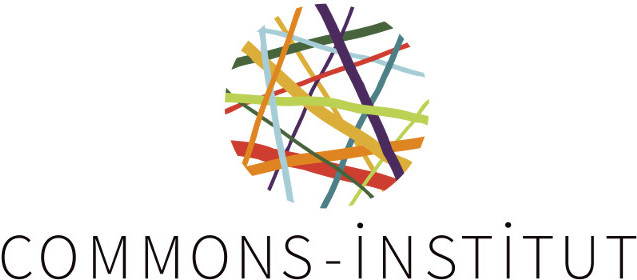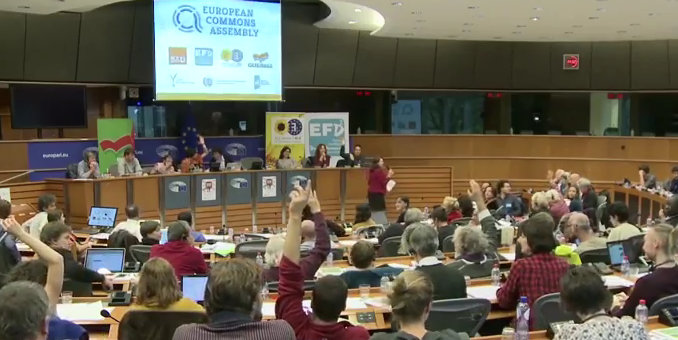Between 15 – 17 November, 2016, The European Commons Assembly gathered in Brussels a group of commoners coming from different parts of Europe who claimed for a pan-European movement for the commons. This video shows a summary of the energizing kick-off event:
Some aspects of the commons
Right to the City: This video reflects about how neoliberalism shape cities as places for tourism, gentrifying and dismantling the cooperative environment of the neighborhoods; as well as how commoners build alternatives by sharing responsibilities in designing a different framework.
Food as a common good: Food, a life enabler and a cultural cornerstone with multiple meanings, is governed as a mere commodity by the neoliberal food policies that prevail in Europe. These meanings so relevant to human are reduced to the one of tradeable good and the value of food is mixed with reduced its price in the market. This video denounces that reductionist approach and presents an alternative narrative to revalue food as a commons (nothing but a social construct) and to recognise the benefits of existing commons-based food systems in Europe (rural-customary and urban-contemporary). This paradigm shift will open up a new set of food policies that will help Europe to transit to a fairer, healthier and more sustainable food system.
Energy as a commons: Cecile Blanchet reflects on how the energy system is designed to please the needs of constant growth of the markets and opposes it to a community-managed paradigm inclusive and accesible.
DiEM25 and Commoners: How to Build an Alternative Together? On the evening of the 15th of November – during a 3 day meeting of the European Commons Assembly- a conversation took place between commoners and DiEM25. The conversation explores what it means for the commons movement to become political, how to move forward and what are the potential synergies between the commons movement and DiEm25.

